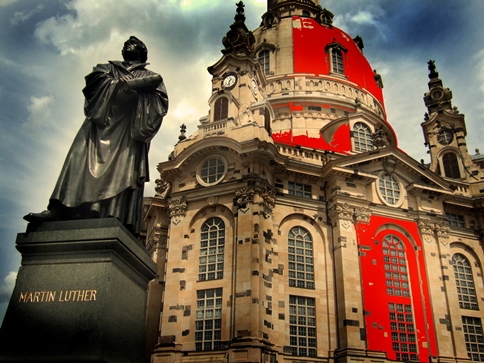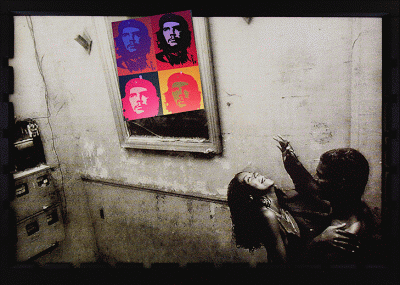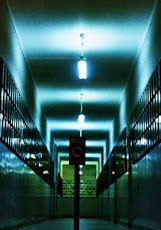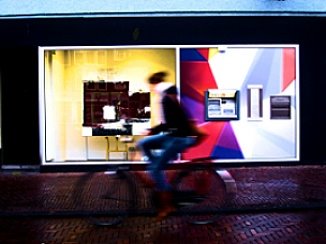The UK debate on its
future role with the EU is begun in earnest. The motion is declared: "National
self-determination better serves UK citizens than further EU supra-nationality
and integration.” Outcomes are judged on
the clarity of argument and whether those not already decided are won over.
The following extracts
show the trends for this national debate, which in reality is the hothouse
focus for a motion affecting the future shape and rule of the EU. This debate
is set in the UK for the rest of Europe to decide who the winner will be.
As in most organised debates
the speakers present sets of arguments to support their position.
First speaker for the motion: (Skeptics) Lord Kalms, Business for
Britain. Life president of Dixons plc
 |
| Speakers Corner Hyde Park, London. A place of debate since 1872. |
When I joined my father
in our first Dixons store in 1948, we would have welcomed with open arms
anything that would keep the nations of Europe from fighting. In the short
term, the EU and its predecessors achieved just that. Now the European Union is
no longer fit for purpose.
The British people
deserve a referendum on our continued relationship with Brussels and, the way
the politics is going on this issue, we should get one.
Like London’s Mayor, Boris
Johnson, I’d like to see the EU taken back to a trading relationship that
promotes rather than inhibits commerce with the rest of the world.
At this crucial juncture
the Eurozone is still in crisis. EU institutions are publishing new plans for
further integration. There is no better time for the Prime Minister to put his
vision for Britain’s relationship with the EU.
Those on the wrong side
of this debate would have you believe that the main change needed is to deepen
the single market, thereby boosting the competitiveness of Britain and Europe
as a whole. That this should be their only means of achieving that end is
narrow-minded and unimaginative.
Brussels is seeking more
“one size fits all” approach to regulation. This is doing so much to prolong
the economic crisis. This approach is just another example of the EU sticking
fingers in its ears in the pursuit of an outdated philosophy.
It’s time Brussels
acknowledged that “ever closer union” is not in the interest of all EU member
states.
The
make-up of business and industry varies hugely across member states. There must
be a more effective mechanism for governments to stand up for national
interests in a particular sector affected by EU regulations.
Equally,
national parliaments – which are naturally better placed to represent the
concerns of their home-grown industries – need to be far closer to EU
decision-making, rather than handing the reins of power to unelected civil
servants and to MEPs.
If there are laws
written in Strasbourg that harm the UK, then Government should have a red card (veto)
so that the UK can stay well clear!
In
Britain, what Business for Britain is doing for the debate on the EU – as it
was on the euro – is push authentic business voices to the fore and let people
hear the real problems that the EU is responsible for. The majority of the
business community is no longer content to sit on the sidelines while the EU today
is the cause of more unrest and infighting than it solves.
It is time for change; either
Brussels makes it, or we do.
First speaker against the motion: (Europhiles) Sir Andrew Cahn. World Economic
Forum’s Global Agenda Council on Europe. Vice-chairman, Nomura.
 |
Jim (Big Jim) Larkin, trade unionist, speaks in Dublin 1913.
"The great appear great because we are on our knees: Let us rise."
100 years on Revolutia Continua. To be EU or not to be EU. |
We are often told that
it is inconceivable that European countries would fight among themselves.
Indeed, those who disparage the EU tend to take its peace for granted, or say
it has little to do with the EU.
My father left Germany
hastily in 1933 to becoming a refugee
overnight. His family went to Spain and was subsumed by its civil war. He left for
London, but was on the move again just as the Blitz was starting, his future
wife sent to Canada for her own safety.
Because of the
volatility of my parents’ lives, I grew up aware that peace, stability and a
secure society are not givens, nor can they be assumed – or even expected. They
have to be worked for and won in every generation.
The Balkan states
experienced the unpredictability that characterised the 1930s and 1940s.
That is why they want to
join the EU, a supranational authority, with a culture of interchange of
peoples and goods and values. The EU is a guarantor of peace more than any
number of politicians assuring us that they have peaceful intentions. Britain
is safer because of the EU.
Nationalism
and Populism is increasing in many European Union countries. They talk about a
dislike of foreigners in their country, glorifying the nation state and how its
history is better and bolder. These are the things which can lead nations into
war.
Not only is EU peace
taken for granted, but also the prosperity it has generated.
Britain has not found it
easy to penetrate emerging markets. We will not suddenly find that their doors
open to us just because we have left the EU. The illusion is to think that
splendid isolation in a global world is actually a workable strategy. We live
in an interconnected world where Little England or Imperial Britain has no
place.
The City of London
changed from being an airless, old boys’ club to being a global powerhouse
because foreigners flooded in with new energy, new ideas and a new openness.
If you can eat well in
London, if you can find world-beating music, dance, design and film, it is in
part because young Europeans full of vitality, ideas and talent come to our
country to make a living and do something exciting.
The
EU provided the framework which changed our society (United Kingdom) beyond all
recognition over the past 50 years.
The flow of people,
capital, opinions and energy from our EU partners has helped to make us
cosmopolitan, sophisticated and competitive in a global marketplace. An
isolated Britain did not make this happen.
Closing our doors, our
shores and our minds to the Continent’s efforts to design the future will
marginalise us. The final benefit of the EU with the UK is a political
structure which involves us in designing the future of our region.
Britain
has been a leader in Europe for centuries. We should not relegate ourselves to
camp follower. It is the sceptics who lack ambition for Britain.
----------------------------------------------------------------------------------------------------------------------------
The speaker for the
motion clearly focuses on some benefits of direct action in business decisions which
affect the country and, ultimately its citizens. He asserts correctly the mood
of the audience as unsure of Brussels strategies.
The Speaker against the
motion has concentrated on the terrible past and the fear factor of rising
dissent and isolation. This merits the question is fear the main component
holding his argument.
As one who was a
correspondent during the Balkan wars I remember it was the UK & Americans
who stopped the War, not the EU.
So is the EU the solution
or the problem as the first speaker suggests. It is clear from this part of the
debate the EU is both as the second speaker points out.
Verdict: All square





































.jpg)

